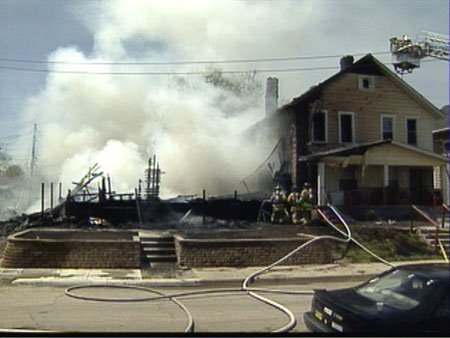Report from the Ohio DOI:
Insurance Department Announces Top Consumer Complaints of 2007, Saves Ohioans $10.7 Million
Claim denials top list; Department offers tips to help with filing claims.
COLUMBUS — Claim denials from insurance companies were the number one complaint of Ohio insurance consumers in 2007, according to statistics released by the Ohio Department of Insurance.
Nearly one-third of the 7,140 consumer complaints received by the Department dealt with the denial of claims by insurance companies. There were 312 more consumer complaints filed in 2007, up from 6,828 complaints in 2006. As a result of complaint reviews, the Department saved Ohio consumers more than $10.7 million in 2007.
A closed complaint is a complaint that has been reviewed and resolved to the satisfaction of the state or jurisdiction in which it is filed. The following lists show the top five types of consumer complaints for Ohio and the United States:
Top five types of Ohio consumer complaints in 2007
1. Claim Denials, 31.6%
2. Delays, 15.9%
3. Unsatisfactory Settlement/Offer, 13.1%
4. Cancellations, 4.6%
5. Premiums/Ratings, 2.7%
Top five Ohio complaints by type of coverage
1. Accident/Health, 42.2%
2. Auto, 26.8%
3. Life and Annuity, 13.2%
4. Homeowners/Renter, 12.1%
5. Other Lines, 5.7%
Top five types of national consumer complaints in 2007
1. Delays, 16.0 %
2. Denial of Claims, 15.0 %
3. Unsatisfactory Settlement/Offer, 9.8%
4. Cancellation, 4.6%
5. Premium/Ratings, 4.4%
Top five national complaints by type of coverage
1. Accident/Health, 36.4%
2. Auto, 34.4%
3. Homeowners, 12.5%
4. Life and Annuity, 9.0%
5. Commercial Multi-Peril, 1.8%
A total of 222,814 nationwide consumer complaints were reported to the National Association of Insurance Commissioners (NAIC) in 2007. This represents a 3.6 percent decrease from the number of nationwide consumer complaints reported during the 2006 calendar year. This information is based on the submission of closed complaint data to the NAIC from the state insurance departments. Aggregate data can be accessed on the NAIC’s web site, http://www.naic.org/.
To help avoid problems getting claims paid, the Ohio Department of Insurance offers these tips:
Know Your Policy – Understand what your policy says. The policy is a contract between you and your insurance company. Know what’s covered, what’s excluded and what the deductibles are.
File Claims as Soon as Possible – Don’t let the bills or receipts pile up. Call your agent or your company’s claims hotline as soon as possible. Your policy might require that you make the notification within a certain time frame.
Provide Complete, Correct Information – Be certain to give your insurance company all the information they need. Incorrect or incomplete information will only cause a delay in processing your claim.
Keep Copies of all Correspondence – Whenever you communicate with your insurance company, be sure to keep copies and records of all correspondence and telephone and in-person contacts.
Ask Questions – If there is a disagreement about the claim settlement, ask the company for the specific language in the policy that is in question. If this disagreement results in a claim denial, make sure you obtain a written letter explaining the reason for the denial.
Don’t Rush into a Settlement – If the first offer made by an insurance company does not meet your expectations, be prepared to negotiate to get a fair settlement. If you have any questions regarding the fairness of your settlement, seek professional advice.
Auto and Homeowners Claims – Auto and homeowners policies might require you to make temporary repairs to protect your property from further damage. Your policy should cover the cost of these temporary repairs, so keep all receipts. Also, keep any damaged personal property for the adjuster to inspect. If possible, take photographs or video of the damage before making temporary repairs.
Health Claims – Ask your physician to provide your insurance company with details about your treatment, medical conditions and prognosis. If you suspect a provider is overcharging, ask the insurance company to audit the bill and verify whether the provider used the proper billing procedure.
If you (as opposed to your doctor) are required to submit the claim, file it as soon as you receive your medical bill, send it to the correct address and keep a copy for your records.
The Explanation of Benefits (EOB) is a statement from the insurance company explaining its claim determination and benefit calculation. You should review your EOBs carefully in conjunction with the medical bills and insurance policy or certificate.
If you disagree with your health carrier’s claim determination, you should follow your carrier’s grievance or appeals process. Details concerning your plan’s appeal and grievance procedures should be included in your employee handbook, evidence of coverage or insurance policy.
To make sure your provider is in the network, ask your insurance company. Providers move in and out of networks, and even though you may be told a group of doctors is in your network, your particular doctor may not be.
For more information about insurance options and tips for choosing the right coverage, go to www.insureUonline.org. Ohio consumers who would like to file a complaint against their insurance company or have questions can call the Department’s consumer hotline at 1-800-686-1526 and visit www.ohioinsurance.gov.
Friday, February 22, 2008
Monday, February 11, 2008
Flood Insurance
What you should know about the National Flood Insurance Program (NFIP) posted by the Ohio Department of Insurance.
What is flood insurance?
Flood insurance is available through the NFIP in any Ohio community that participates in the program.Your personal insurance agent should be able to tell you if your community qualifies for coverage and if you should consider buying the coverage.NFIP defines flooding as a general and temporary condition where the surface of normally dry land is partially or completely inundated. Two properties or two or more acres must be affected. Flooding can be caused by the overflow of inland or tidal waters, the unusual or rapid accumulation of runoff, mudslides or water currents exceeding normal, cyclical levels.
Tips for purchasing flood insurance
Contact your insurance agent or company to inquire about flood insurance. Even though flood insurance is a federal program, private insurance companies sell the policies.
The Ohio Department of Natural Resources (ODNR) can also be a source for helping citizens and agents determine if there is a flood hazard area and how the mandatory purchase requirements could impact consumers in those areas. You can purchase flood coverage at any time, even during a flood - provided that your community participates in the NFIP - but there is a 30-day waiting period for the insurance to become effective, so don’t wait until a flood to act. Flood insurance is available to protect homes, condominiums, apartments and non-residential buildings, including commercial structures and their contents. The NFIP offers basement flood coverage for structural elements, essential equipment and other basic items normally located in a basement. The NFIP encourages people to purchase both building and contents coverage for the broadest protection.Where to get more information about NFIP
The Federal Emergency Management Agency (FEMA) Natural Hazards Division: 1-888-CALL-FLOOD (http://www.floodsmart.gov/floodsmart/pages/index.jsp).The Ohio Department of Natural Resources Floodplain Management Program Office: (614) 265-6750 (http://www.dnr.state.oh.us/).
Questions or concerns?
The Ohio Department of Insurance regulates agents and companies that are licensed to sell insurance in our state. The Department’s Consumer Services representatives can answer your insurance questions and investigate your complaints about an insurance company or agent. Call 1-800-686-1526.
What is flood insurance?
Flood insurance is available through the NFIP in any Ohio community that participates in the program.Your personal insurance agent should be able to tell you if your community qualifies for coverage and if you should consider buying the coverage.NFIP defines flooding as a general and temporary condition where the surface of normally dry land is partially or completely inundated. Two properties or two or more acres must be affected. Flooding can be caused by the overflow of inland or tidal waters, the unusual or rapid accumulation of runoff, mudslides or water currents exceeding normal, cyclical levels.
Tips for purchasing flood insurance
Contact your insurance agent or company to inquire about flood insurance. Even though flood insurance is a federal program, private insurance companies sell the policies.
The Ohio Department of Natural Resources (ODNR) can also be a source for helping citizens and agents determine if there is a flood hazard area and how the mandatory purchase requirements could impact consumers in those areas. You can purchase flood coverage at any time, even during a flood - provided that your community participates in the NFIP - but there is a 30-day waiting period for the insurance to become effective, so don’t wait until a flood to act. Flood insurance is available to protect homes, condominiums, apartments and non-residential buildings, including commercial structures and their contents. The NFIP offers basement flood coverage for structural elements, essential equipment and other basic items normally located in a basement. The NFIP encourages people to purchase both building and contents coverage for the broadest protection.Where to get more information about NFIP
The Federal Emergency Management Agency (FEMA) Natural Hazards Division: 1-888-CALL-FLOOD (http://www.floodsmart.gov/floodsmart/pages/index.jsp).The Ohio Department of Natural Resources Floodplain Management Program Office: (614) 265-6750 (http://www.dnr.state.oh.us/).
Questions or concerns?
The Ohio Department of Insurance regulates agents and companies that are licensed to sell insurance in our state. The Department’s Consumer Services representatives can answer your insurance questions and investigate your complaints about an insurance company or agent. Call 1-800-686-1526.
Subscribe to:
Comments (Atom)


